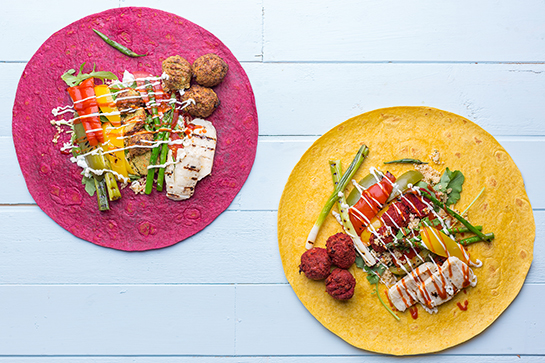The own label sector has seen a significant expansion over the last few years, with premium products driving the category forward. According to the British Frozen Food Federation (BFFF), the UK private label retail market was worth £3.3 billion for the year ending in April of 2018, while the foodservice segment was valued at £2.3 billion.
 Chicken Kiev is distributed under the Golden Valley Foods private label.“The own brand retail market was flat just a year ago, but it has been a really good year and sales have grown 6.2% year-on-year,” said John Hyman, chief executive at the Long Bennington, Lincolnshire, England-based trade association. “Whilst there is an element of inflation, the good news is consumers are spending more on frozen food. Private labels are growing ahead of the market by 8.8%, which is a 54.9% share of the market.”
Chicken Kiev is distributed under the Golden Valley Foods private label.“The own brand retail market was flat just a year ago, but it has been a really good year and sales have grown 6.2% year-on-year,” said John Hyman, chief executive at the Long Bennington, Lincolnshire, England-based trade association. “Whilst there is an element of inflation, the good news is consumers are spending more on frozen food. Private labels are growing ahead of the market by 8.8%, which is a 54.9% share of the market.”
It would seem the success of private labels is just as prevalent in most of continental Europe, where the volume market share of frozen foods is increasing year-on-year. According to IPLC Europe, Switzerland has the highest rate at 74.9%, followed by Spain at 68.6% (up 9.6% compared to 2013), France at 48.4%, and 26.1% for the Netherlands (up 0.6%).
Value-added private labels (VAPLs) – which include premium, organic, free from, eco-friendly and regional private labels – play an integral role in the retail sector in Europe. Aside from boosting profit margins, they are vital in order to stand out from the competition. VAPLs also allow retailers to meet consumer needs and changing trends, enabling them to build loyalty with them.
 Koen de Jong“We seek to insert value-added private label to drive growth and profitability,” said Koen de Jong, managing partner of Vaught, Netherlands-based IPLC Europe consulting firm.
Koen de Jong“We seek to insert value-added private label to drive growth and profitability,” said Koen de Jong, managing partner of Vaught, Netherlands-based IPLC Europe consulting firm.
Early in May IPLC issued its 2018 research report entitled the “Opportunities in the Value-added Private Label Market.” During the first four months of this year, 25 retailers in nine countries were visited to investigate their full private label architecture. The analysis provides a deep insight into their strategies.
Below is an excerpt from the report, which is available for a fee at www.iplc-europe.com:
“Over the past decade discount retailers have put enormous pressure on the prices of standard private label (SPL) across Europe. As a result mainstream retailers were forced to respond by lowering their prices in order to reduce the value gap. In most cases this resulted in a serious deterioration of margin. To compensate, they reviewed their strategies in order to mitigate the pain, and VAPLs turned out to be a powerful instrument in their toolbox.”
Upping the Ante
Consumer perception of frozen food has improved dramatically compared to just five years ago, as innovations in freezing techniques have improved the quality and variety of products on offer. Consumers are now far more aware of the nutritional benefits of frozen foods.
At one time private labels were perceived as the cheap and cheerful option of seemingly inferior quality, but a tiered approach introduced in both retail and foodservice sectors has allowed a more positive view of frozen private label products to blossom.
Today’s consumers want to see restaurant quality in own brand products that they can experience at home with ease, and the industry is clearly taking note as the BFFF reported seeing more entries than ever for its annual awards competition, which salutes product innovation.
“Certainly, I think the perception of own brand quality has improved,” said Gordon Lauder, managing director of Northamptonshire, England-based Central Foods. “When the banking crisis hit the UK in 2008 and everyone had to tighten their belts in the ensuing years of austerity, caterers were forced to look for cheaper alternatives and found own brands were more than capable of providing the products they required at the right quality and right price. As a result, they re-evaluated own brands, and those that continue to satisfy their requirements have endured and even flourished, with some now even rivaling the larger branded players in the market.”
According to forecasts by IGD, premium private labels (PPL) in the UK retail sector will become one of the most important trends with retailers increasingly investing in PPL.
With the frozen food sector in a good place private labels are doing well and there are now far more premium products compared with a decade ago. Indeed, IGD reports that 75% of UK shoppers believe the quality of them has improved over the last two years. However, there are not premium options across the board so there is room to expand premium own brand labels throughout every frozen category.
 John Hyman“What we are seeing across all categories is polarization in the areas consumers care about,” explained Hyman. “With the increased choice and prevalence of these products there is more credibility. We would encourage more premium innovation in the future from an indulgence perspective and health perspective.”
John Hyman“What we are seeing across all categories is polarization in the areas consumers care about,” explained Hyman. “With the increased choice and prevalence of these products there is more credibility. We would encourage more premium innovation in the future from an indulgence perspective and health perspective.”
Market Awareness
As a key frozen food distributor, Central Foods markets own brands such as its proprietary Golden Valley Foods range of value poultry products including Chicken Kiev. It’s a prime example of how an own label can develop in terms of the range of products as well as volume sold.
“By having our own brand, if we identify a need or demand for a particular product, we can source it or develop it with full control of the quality specification and production process, which we closely monitor to ensure no deviation, and bring it into the range,” said Lauder.
Central Foods has recently introduced three new gluten-free chicken products to the Golden Valley Foods portfolio, as it recognized that there’s an increasing demand for gluten-free items in the foodservice sector.
Another addition to the company’s own brand offerings is the KaterBake range of baked goods, which includes mini doughnut balls and mini filled muffins. Also offered are beetroot and pumpkin flavored wraps.
“It’s important to offer own brands, as it supplements the branded manufacturers who don’t always offer smaller, tertiary lines that chefs may need,” said Lauder. “It’s also important where cost is the issue. Different outlets in foodservice will have different price points, depending on their customers, location and other factors. For some, branded products are ideal.”
Although the frozen own label sector is growing, there is still room for development throughout all types of frozen food. By offering own brand products, over a range of tiers, suppliers will be giving their customers choices at a range of price points ensuring everyone’s catered for. – Reported by Sarah Welsh
 KaterBake private label beetroot and pumpkin flavored wraps from Central Foods are suitable for vegetarians and vegans.
KaterBake private label beetroot and pumpkin flavored wraps from Central Foods are suitable for vegetarians and vegans.




